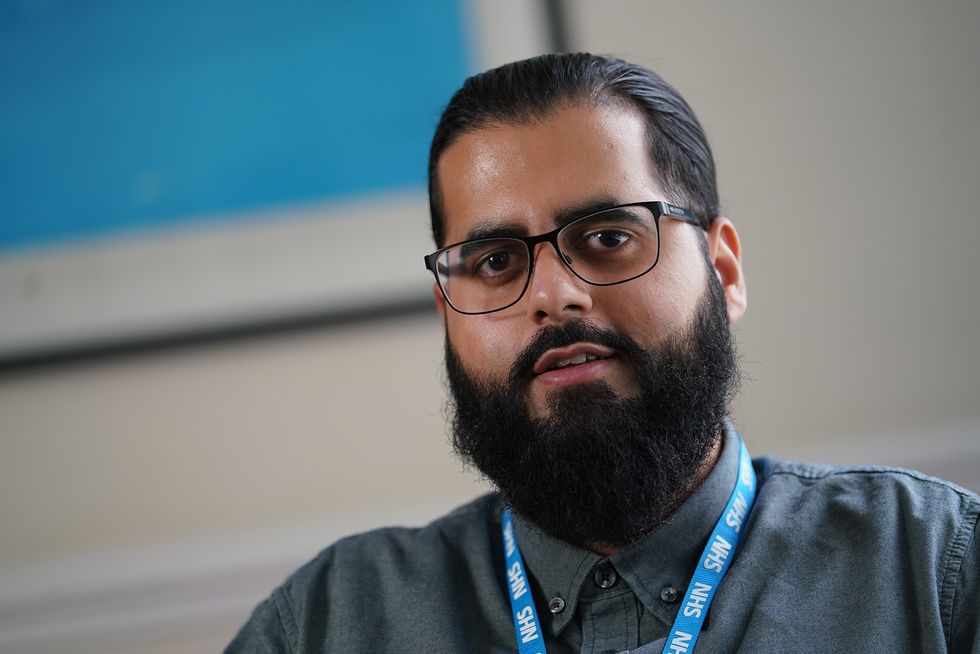HARMEET grew up in a vibrant multicultural corner of east London, with her parents, sister and grandparents.
And from an early age, she was always encouraged to use her voice to help others.
“This ranged from translating information from English to Punjabi for older relatives and supporting my mother to bring up my younger sister, to giving advice to my school mates. I loved this responsibility as I adored my family and friends and would do anything I could to make their lives easier,” said Harmeet, 41 from Berkshire.
However, as time went on and Harmeet needed support herself, she found it difficult to ask for help.
“In my early 20s, I began to lose several family members. I then suffered a miscarriage and found myself struggling with a feeling of crushing numbness – what I now know was post-natal depression. This was probably the darkest period of my life,” she said.
“I felt too ashamed to tell anyone that I couldn’t cope. I was seen as the strong one, the person everyone depended upon. I was scared they wouldn’t understand – or worse still, might gossip about me to members of the community.
“So, for the first time in my life, I decided to keep quiet, and hoped whatever I was feeling would go away in time.”
A new NHS England poll found over three in five (64 per cent) of south Asians had felt concerned about their mental health in the last year. In fact, over two in five (42 per cent) of those asked had experienced depression, and just under three in 10 (29 per cent) had experienced generalised anxiety disorder.

“It is a huge taboo to discuss mental illness in the south Asian community,” added cognitive behavioural therapist, and NHS accredited Talking Therapies clinician Ummar Sadique. “Many people wrongly believe they are being punished for their bad deeds, or that it’s a result of bad parenting, with others dismissing it as a trivial condition that shouldn’t be taken seriously.
“Language is another barrier as some mental health terms don’t even exist in many of our languages. I’d urge anyone in our community struggling with feelings of depression, or anxiety, to use NHS Talking Therapies,” continued Ummar.
“The free, effective and confidential treatments are delivered by trained clinicians like me. If your first language isn’t English, it can be delivered through multilingual therapists or through confidential interpreters in a variety of different languages including Hindi, Bengali, Punjabi, and Urdu.”
Following her struggles with depression and anxiety, Harmeet referred herself to NHS Talking Therapies and was given cognitive behavioural therapy (CBT). She has since gone back to the service, regularly using the methods she has learned to help manage day-to-day challenges. Harmeet said: “Talking Therapies helped pull me out of the dark hole I found myself in.
“Through receiving help from an independent and totally non-judgmental person, I was able to share what felt heavy and release the weight I had been carrying, and now my mental health is better than ever before.
“If you ever feel like you are struggling, please use your voice for the good of your mental health and seek support.”
NHS Talking Therapies can help provide support and treatment for common mental health conditions, such as:
- feeling anxious
- feeling low and hopeless
- having panic attacks
- finding it hard to cope with work, life or relationships
- struggling with flashbacks or nightmares about upsetting events from your past
- feeling stressed
- worrying a lot
- obsessive thoughts or behaviours
- fear of social situations
- being afraid of things, such as spiders, flying or heights (phobias)
The treatments can be accessed online, on the phone, or in person and you don’t need to have a diagnosed mental health problem to be eligible to seek help.
Your GP can refer you for NHS Talking Therapies, or you can refer yourself online at nhs.uk/talk.




